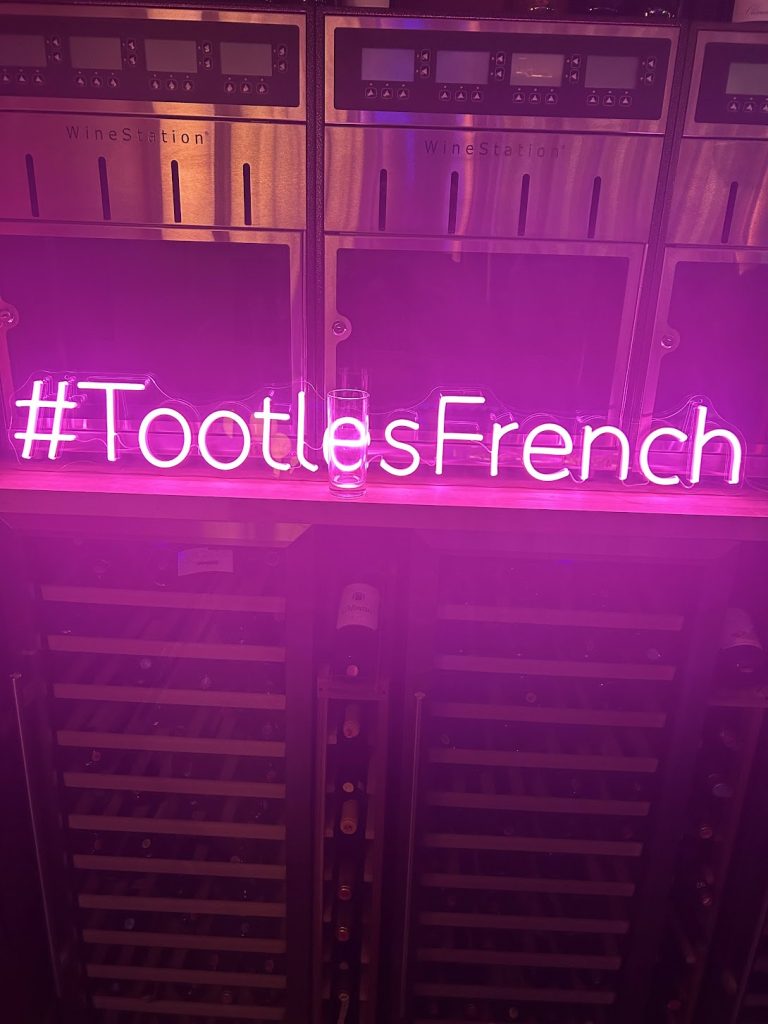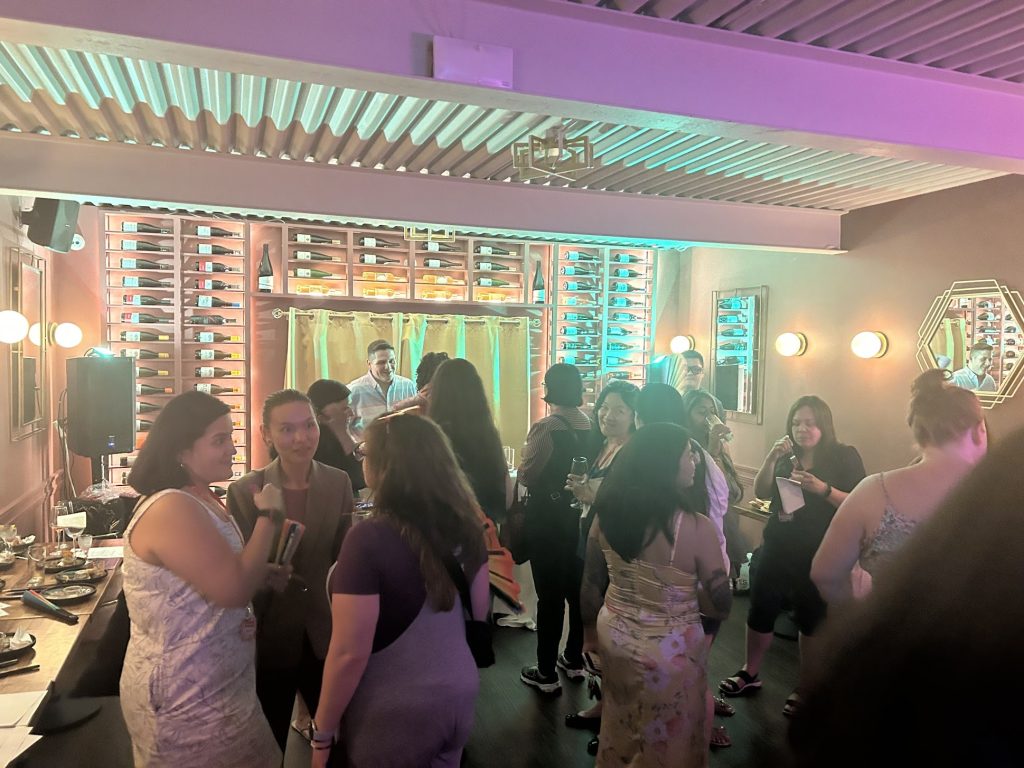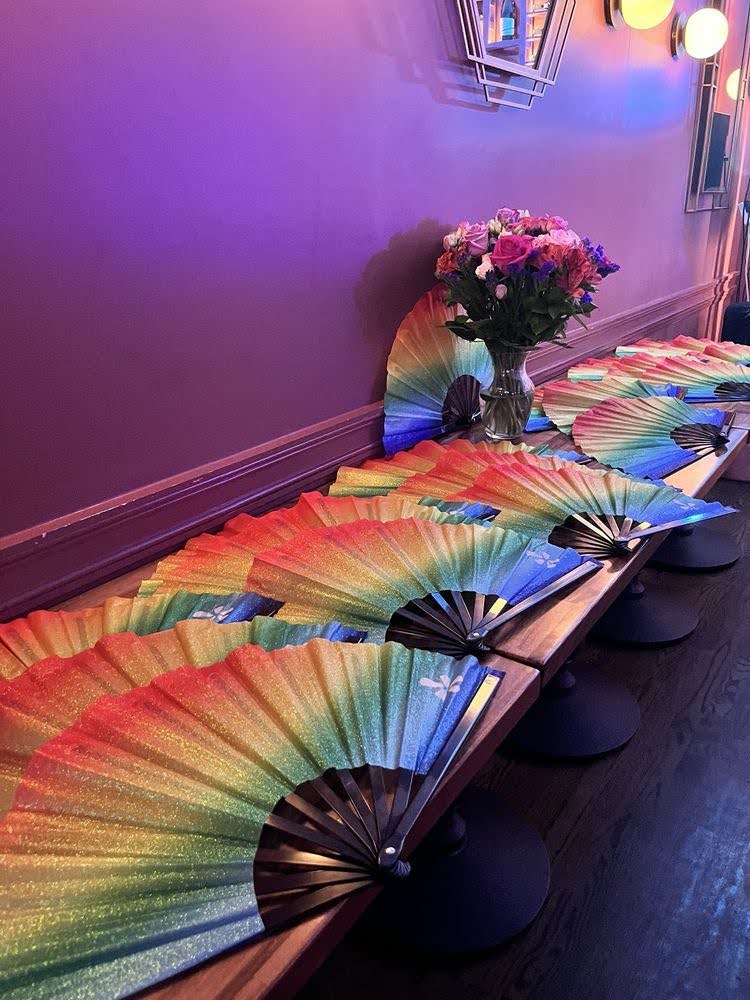Christian Spencer

On a balmy June evening, a small but spirited group of Yelp reviewers stepped inside Tootles & French, a queer-owned wine bar on Ditmars Boulevard, for a Pride Month gathering that mixed subdued elegance with subtle celebration.
Organized as a private event by Yelp Queens, the occasion was open exclusively to members of the app’s Elite Squad, a handpicked group of its most active reviewers.
The turnout was modest—just a few invited guests—but the atmosphere inside the cozy bistro pulsed with the warmth of community and the sparkle of curated detail.
Among those in attendance was Alice Wu, a Yelp Elite member for five years.
Though she now works at a startup, she previously held a sales role at Yelp.
Wu said the Yelp event was her first Pride event of the season.
“I wanted to support the Queens community and LGBTQ-owned businesses,” Wu said. “This felt like the right place to do that.”
For Wu, a self-identified lesbian, Pride is about visibility, strength, and the resilience of living authentically.
“I honestly wouldn’t be myself without it,” she said. “I’ve known since I was a kid, but I was bullied a lot growing up… I didn’t want to live untrue to myself, and I’m really glad I came out—even with the hardship. It’s made me stronger.”
That sense of refuge is why she was drawn to an event like this, especially in a venue like Frenchies.

“Just knowing it’s queer-owned makes me feel safer,” she said. “And Yelp helps with that too—you can tag a place as LGBTQ-friendly or queer-owned, and that can mean everything if you’re unsure about where to go. It signals the space is open and welcoming.”
Also at the event was Hannah Lieberman, a local comedian and owner of the neighborhood comedy venue QED. Her story brought a more entrepreneurial lens to the evening’s themes of identity and community.
When she learned her favorite performance space was in danger of closing, she bought it herself.
“QED has always been my favorite spot to perform,” Lieberman said. “The vibes are just immaculate… It was actually the first club where I was passed as a comedian and the first one I headlined.”
Lieberman’s presence, too, was rooted in personal connection.
“I met Samantha, the organizer, at our Booze and Builds night—our grown-up Legos-and-drinks event. She invited me to this and I thought, ‘Free food? Say no more.’”
Though the event was light on numbers, the space felt meaningful—a reminder that Pride doesn’t need a crowd to be profound. That was echoed in Wu’s reflections on LGBTQ life in the city.

“When I first moved to New York, it felt hit or miss,” she said. “There are strong queer communities, but I’ve also faced harassment—people yelling slurs on the street. So yeah, we’ve made progress, but it’s uneven.”
Each June, Wu takes part in both the Dyke March and the Queer Liberation March, grassroots events she sees as keeping Pride grounded in its original protest roots.
“Pride started with Stonewall—it was always about protest. These marches remind us of that and push for real change.”
On the nuances of language, Wu was clear-eyed.
“Words like ‘dyke’ or ‘queer’—they’ve been reclaimed by many in the community, but context matters. If you’re not part of the group, it’s best to be cautious.”
By the end of the event, guests lingered over rosé and charcuterie, swapping stories and recommendations for local queer-friendly spots. It was not a bash but a subtle celebration.
The event is a demonstration that Pride Month can flourish even without extravagant celebrations.


